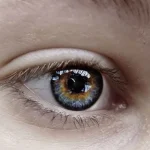1.Take A Break From Your Screen
If you spend a lot of time at the computer, then it’s time to shift your focus and take a break from the screen. Looking continuously at a screen reduces your blinking rate and causes fatigue in the eyes. Staring at a computer or phone screen for hours due to financial year closing and its workload can result in computer vision syndrome which results in eyestrain, blurred vision, trouble focusing at a distant thing, dry eyes, headache and pain in the neck, back, and shoulder. Try the 20-20-20 rule: Every 20 minutes, look away about 20 feet in front of you for 20 seconds. This can help reduce eyestrain and keep your eyes healthy by letting them refresh during this break. If you regularly suffer from tired, aching or burning eyes, you may need to visit your optometrist to examine your eyes and rule out a dry eye, myopia or hypermetropia.
2.Use Proper Lighting
While working for the financial year closing projects and meeting the deadlines, it is important to work in a well-lit room. Ensure that the room in which you are working is lit with proper lighting which is not too bright or low. Proper lighting ensures less strain on the eyes and does not put them at the risk of developing eye conditions. Low-intensity bulbs and fluorescent lights are ideal to use for the work area. You must also adjust your computer’s brightness; font size and contrast to suit your vision comfortably.
3.Eat Healthy Food
During the financial year closing work stress, it’s very important to focus on your eating habits and diet. You must ensure you eat healthy food. It’s essential to consume important vitamins, minerals and antioxidants through healthy foods. Vitamins and nutrients like beta-carotene, lutein, vitamins A, C and E, omega-3 fatty acids and zinc strengthen the eyesight. Carrot is known to improve the eyesight as it contains beta-carotene, lutein and lycopene. Lutein and lycopene are phytonutrients that protect the eyes from sun damage and UVB radiation. Citrus fruits and juices like orange and lemon are rich in Vitamin C. Vitamin C protect the eyes against infections and diseases. Green leafy vegetables like cabbage, spinach and kale contain antioxidants and vitamin that protects the eyes from developing cataracts. Food like eggs, grapes and dark berries are great sources of zinc that help increase clear and sharp vision.
4.No Smoking, Quit Smoking
Due to stress and work pressure of the financial year closing, many people tend to shift towards unhealthy habits like smoking. Smoking is bad for your eyes and body. It puts you at the risk of getting cataracts, damages your optic nerve and develops macular degeneration, all of which can lead to blindness. Smokers are at a double risk of developing these eye conditions compared to non-smokers. Smoking leads to damage of the eye muscles and tiny blood vessels, thus also increasing risks of glaucoma, diabetic retinopathy and dry eye syndrome. Try to quit smoking totally. The harder you try to quit, the more likely you are to succeed. Ask your doctor for help.





